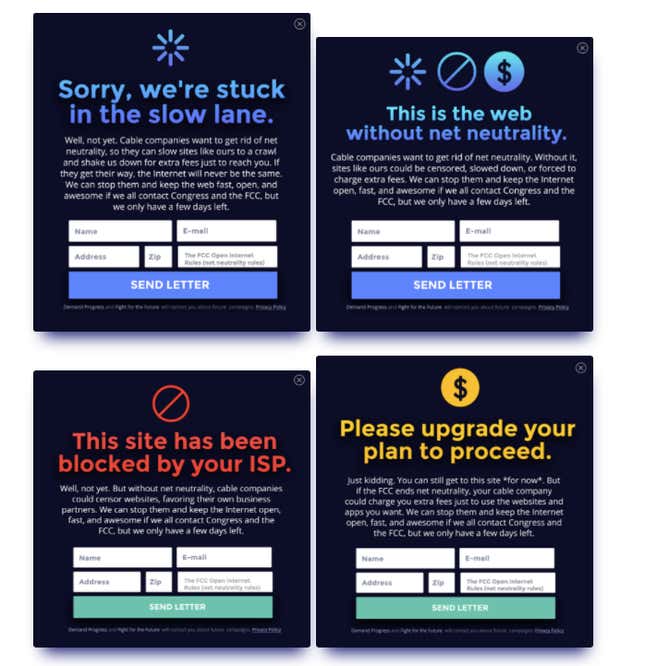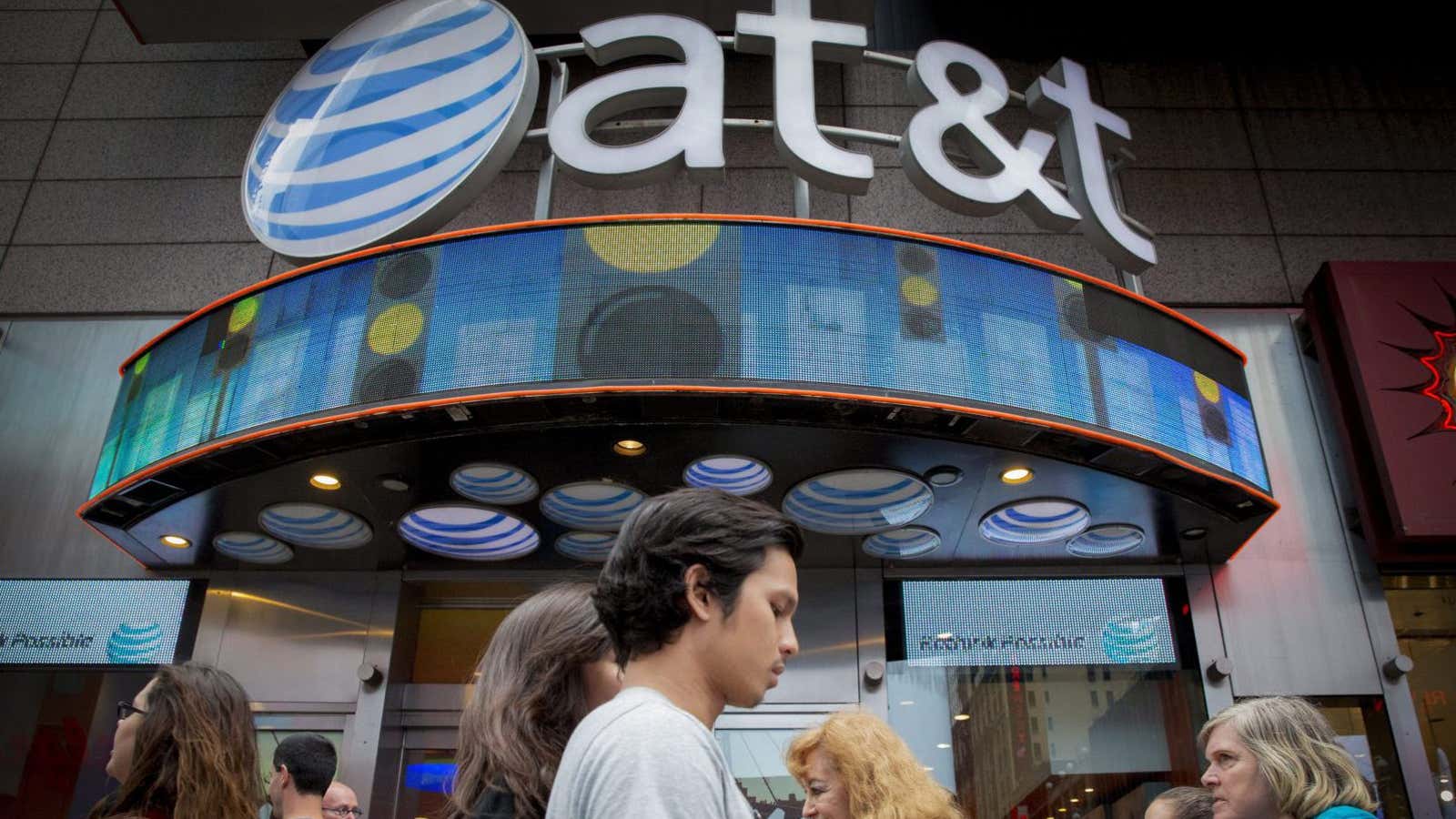Republican appointees to the US Federal Communications Commission are gearing up to scrap Obama-era regulations that force internet providers to treat all online content equally. In response, Amazon, Google, Twitter, Facebook, Dropbox, Ebay, and thousands of other companies joined in a day of action today (July 12) to defend the current rules.
The existing net-neutrality provisions prevent major telecom carriers such as AT&T, Verizon, and Comcast from blocking or slowing down access to web content. The protesters, backed by coalition of liberal advocacy groups called Battle for the Net, say a reversal of the rules would let telecom operators discriminate against specific content, potentially creating “fast lanes” only for those willing to pay broadband providers.
Advocacy groups argue that Americans will be worse off if the costs are passed down as new fees, and if providers get to pick online “winners and losers” in determining which content should receive favored treatment.
In protest, many websites and apps are displaying prominent alerts, gifs, and graphic—such as the “spinning wheel of death”—to give users a taste of how the internet might work if current net-neutrality rules are revoked. The collective action by the tech industry draws on successful tactics from the 2012 Stop Online Piracy Act (SOPA) blackout and the 2014 Internet Slowdown protests that helped pressure the FCC to adopt tough open-internet rules.

Internet providers and their Republican allies contend the regulations, derived from legislation governing telephone networks under the Communications Act of 1934, have hampered innovation and investment in their networks. FCC chairman Ajit Pai, a Trump administration appointee, argues the Federal Trade Commission can target individual companies engaging in anti-competitive behavior, while net-neutrality rules can be left to Congress. “All of us favor a free and open internet,” Pai said in an interview with CNET. “The only question for the FCC is what is the best legal framework to secure some of those core values that have given us a digital economy that is the envy of the world.”
The FCC will accept public comments until July 17. There are more than 6.2 million filings already.
Republican Congressional representative Marsha Blackburn of Tennessee called the July 12 protests “another day of confusion for consumers and users,” and criticized Democrats in Congress for not helping to pass net-neutrality legislation. “What I find interesting is that we have asked Democrats for years to come to the table on this issue, only for them to hide behind political excuses,” she said according to Politico.
Yet what rules would take their place remains an open question. Pai has only alluded to a ”Clinton-era light touch approach” while articulating his general philosophy toward the question. “The more heavily you regulate something, the less of it you’re likely to get,” Pai said in a speech this April (pdf). Industry groups like the Internet Association contend that a repeal of the rules will lead to shakedowns by internet providers who would be newly empowered to levy discriminatory fees on internet users and content producers.
Pai looks to have the votes to push the measure through the FCC later this year, but Mark Stanley of protest organizer Demand Progress told Recode that he hopes the net-neutrality fight will start to resemble the floundering GOP effort to overturn Obamacare: a former slam-dunk in Republican eyes that became a wildly unpopular measure and could very well fail to garner enough votes to pass.
